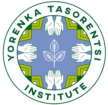Be part of the change.
Your donation is an impactful support for the realization of our goals.
We are currently directing these funds toward the projects below.
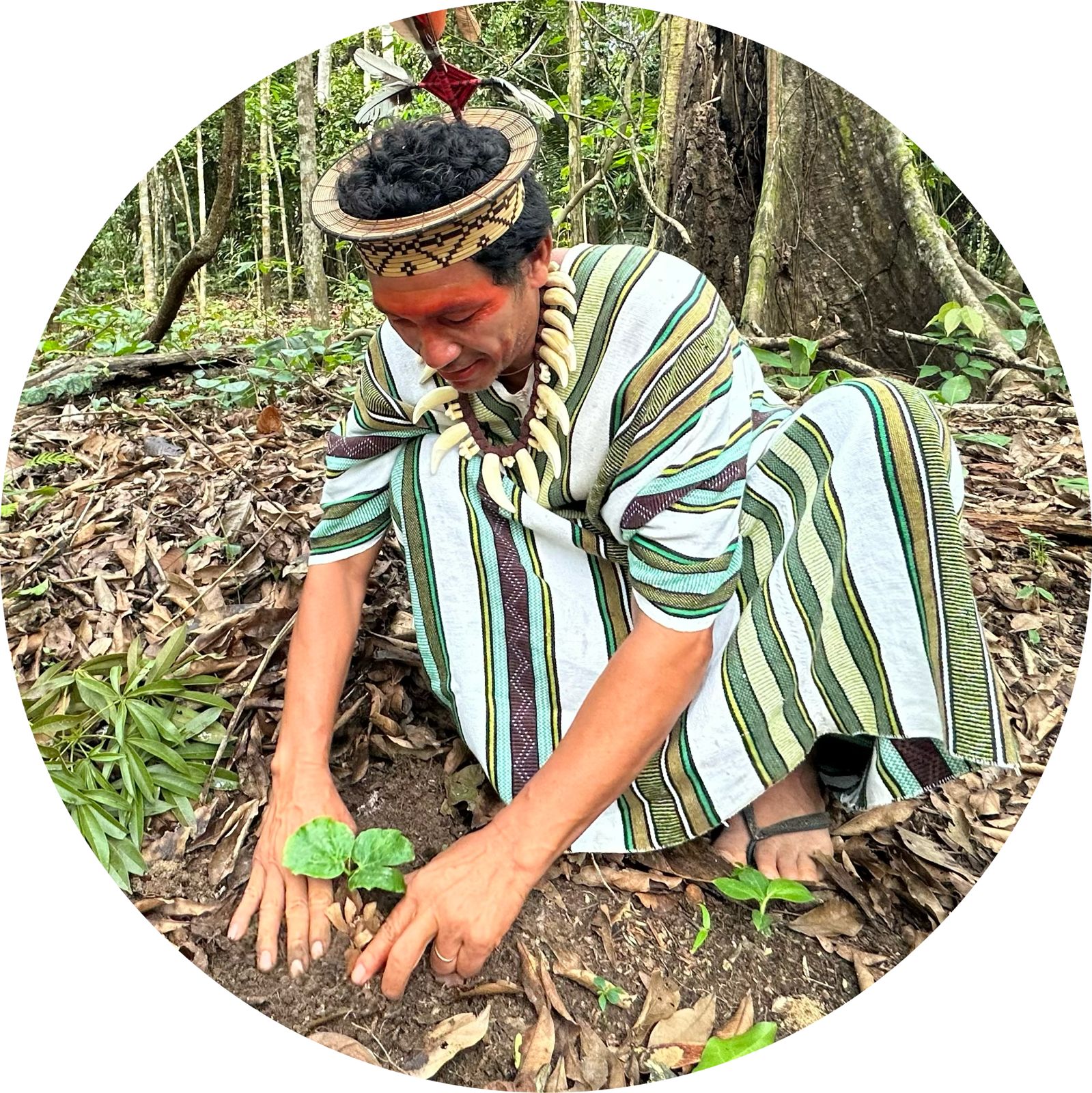
REFORESTATION
To recover degraded areas in the Amazon Rainforest caused by illegal logging and cattle raising, the Yorenka Tasorentsi Institute has focused on reforestation projects to restore forest areas and its unique biodiversity. Benki Piyãko, the president of Yorenka Tasorentsi and Ashaninka leader, has planted manually over 3 million trees along with his team and community over the last 20 years and Yorenka Tasorentsi’s goal is to plant 10 million within the next 10 years. Having practiced reforestation since his childhood, learning from his grandparents and parents the importance of the sustainable use and protection of natural resources. Benki developed an agroforestry system focused on the necessities and realities of the Upper Juruá River, where the Institute is located. Maintaining the diversity of native species is the secret to this work. Using traditional Asháninka reforestation techniques alongside modern methodologies, Benki knows which species are needed to recovered forested areas and where different trees grow best, understanding where soil has been significantly affected by cattle raising and illegal logging.
Click here to be part of this environmental mission!
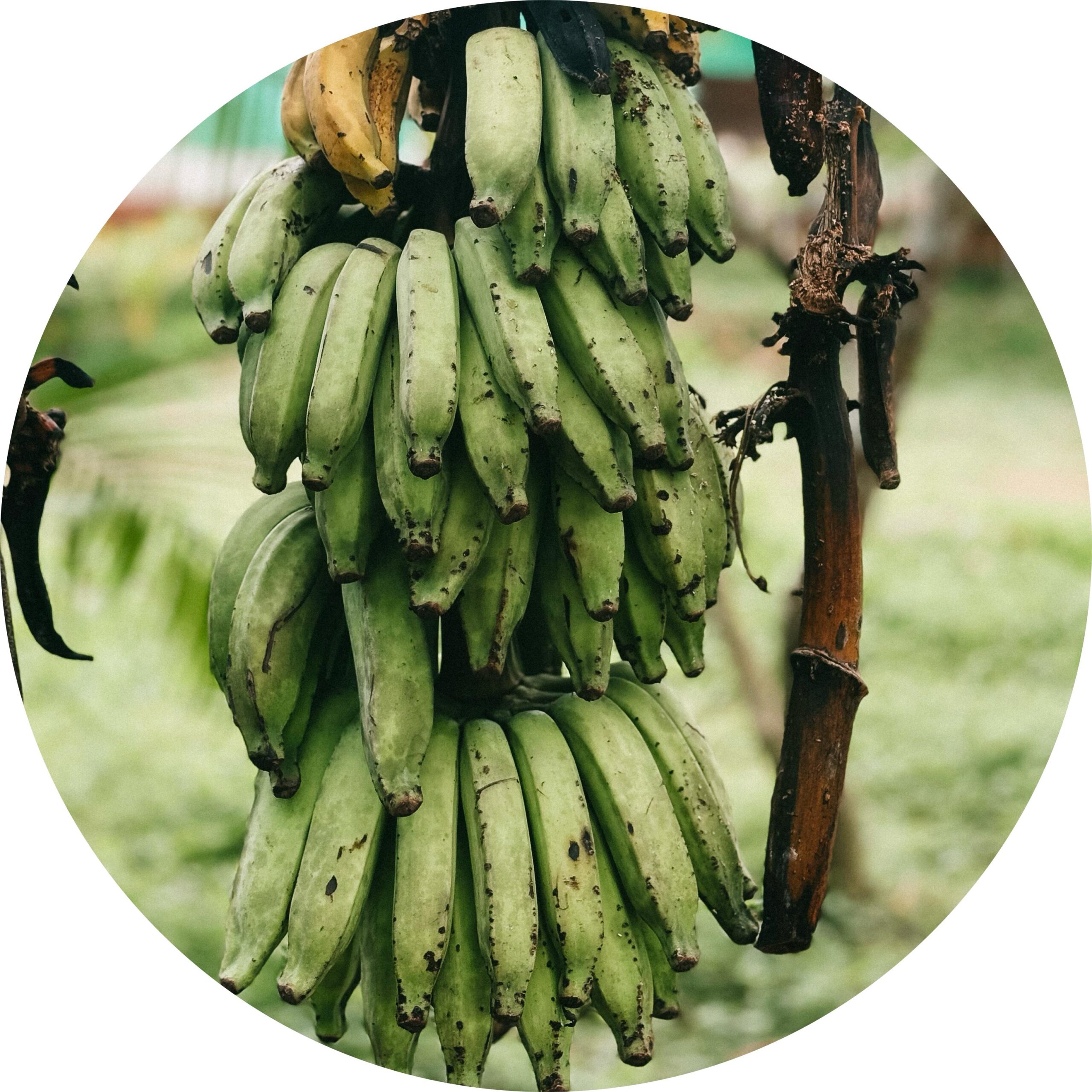
FOOD SECURITY
In the Amazon, climate change has reduced the availability of fish in rivers and lakes, threatening local food security. In response, the Yorenka Tasorentsi Institute and Benki Piyãko have built 30 fish ponds within their grounds and are supporting neighboring communities to establish their own. These ponds not only ensure a stable source of nutritious food but also help reduce cattle raising and illegal fishing in the Upper Juruá Region. The goal is to expand this effort with 80 additional ponds, securing food sovereignty for the entire region.
At the same time, the Institute has been regenerating degraded lands by planting millions of native and introduced fruit trees — including açai, cupuaçu, buriti, guava, ingá, and bananas. This pluricultural planting nourishes both people and soil, combats poverty and malnutrition, and strengthens the local economy.
You can support this project with a donation to ensure food sovereignty for the local population!
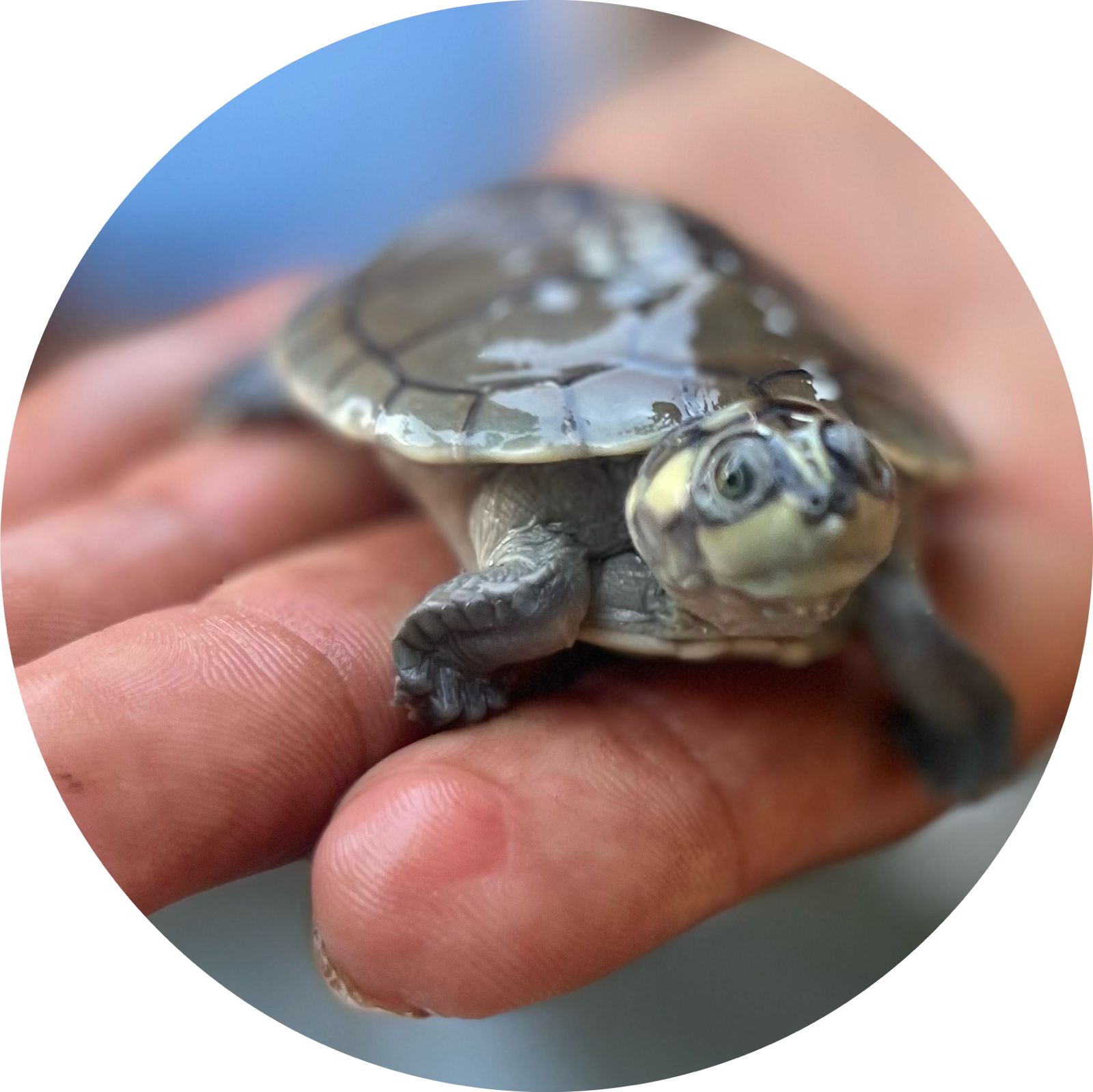
WILDLIFE CONSERVATION
Due to the destruction of forest areas, many animal species, including birds and insects, are vanishing. Benki and his Asháninka community have been focused since the mid-1980s on the recovery of certain species of animals like terrapins and tortoises. At the Yorenka Tasorentsi Institute, Benki breeds terrapins and tortoises to recover populations. Additionally, Benki plans to breed other native animals, such as tapirs, wild pigs, macaws and other birds, to prevent their species from disappearing and to increase their numbers in the region.
The Institute is seeking support to make this initiative possible and you are the one who can help us with this mission! Click here to donate.
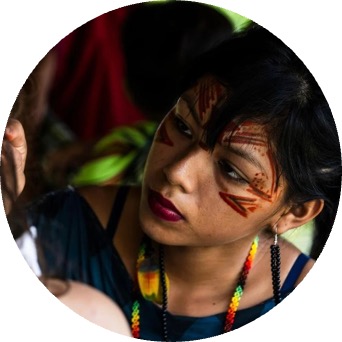
CULTURE STRENGTHENING
Indigenous knowledge and the Earth’s biodiversity are inherently connected. Benki Piyãko established the Yorenka Tasorentsi Institute to safeguard the traditional spiritual wisdom of Indigenous Peoples, which has been protected and developed over millennia and is crucial to our planet’s well-being.
Additionally, Benki advocates for the rights of Indigenous Peoples, supporting the strengthening of indigenous communities in the State of Acre, as well as other regions of Brazil and abroad.
Since 2017, the Institute Yorenka Tasorentsi organizes the Indigenous Ayahuasca Conference to strengthen and protect the traditional knowledge of the Indigenous Peoples related to this medicine and its practices.
Also, Benki Piyãko wants to build a school within the Institute. The project aims to provide quality education, strengthen the Ashaninka language and culture, promote environmental education, and ensure the social, cultural, and economic development of new generations.
Please, donate to this project to promote the cultural strengthening within the Institute’s work!
